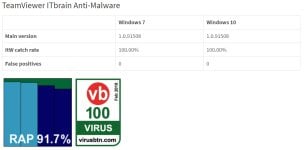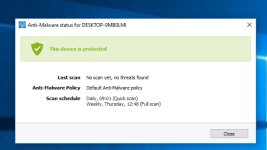As for Microsoft, it is true it's improving but it is very far yet to "kill the AV industry". But they have got a thing on their favour and that is that due to being a built-in software they can be as intrusive as Donald Trump's deporting system and get to know really deep what users need. When the right time is here, and Winter is (not) coming anymore, Microsoft will be a very efficient competition.
Microsoft pour their really innovative creations in enterprise because that is where it is most suited, the home user market is already full with a wide variety of different solutions to cater for people with different needs and by default Windows Defender needs to be as good as possible for user-ability and comfort-ability towards novice users who will not understand how to tweak Windows Defender.
Hence why the AV industry is not dead, Microsoft could do a lot of things but they just cannot for other reasons other than not being "capable". They also are partnered with many AV vendors and have more important things to be using resources for like improving safety of the OS internally by patching vulnerabilities and further preventing more being introduced for the future, and that in itself is a great deal.
Windows Defender for home users is supposed to be minimal for the modern world for fighting against malware, hence why it comes with some settings like Controlled Folder Access over an approach for anti-ransomware like a BB in an IS suite would have. Windows Defender even for home users can do more with group policies however such isn't adapted for novices/average users which is why it is all hidden away and it would be more convenient for one to use a different solution just by installing and clicking a few clicks and have more components for a layered protection approach.
However yes, it is true that Windows Defender is much better nowadays. Especially for generic detection and their cloud network. The end-point services are quite interesting for things like virtualization.




